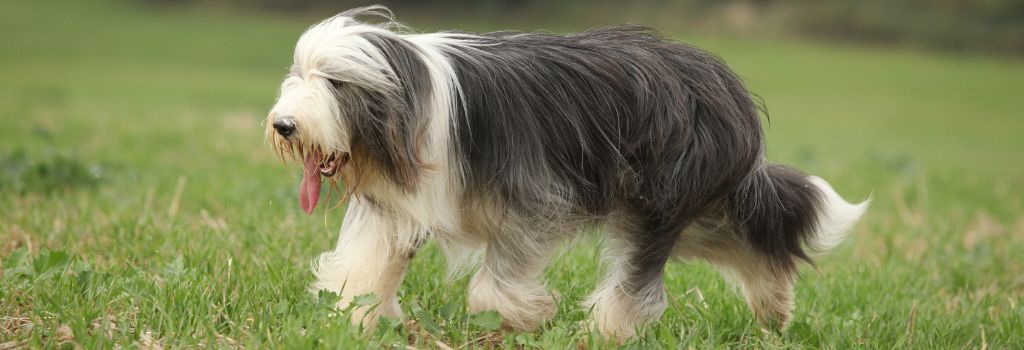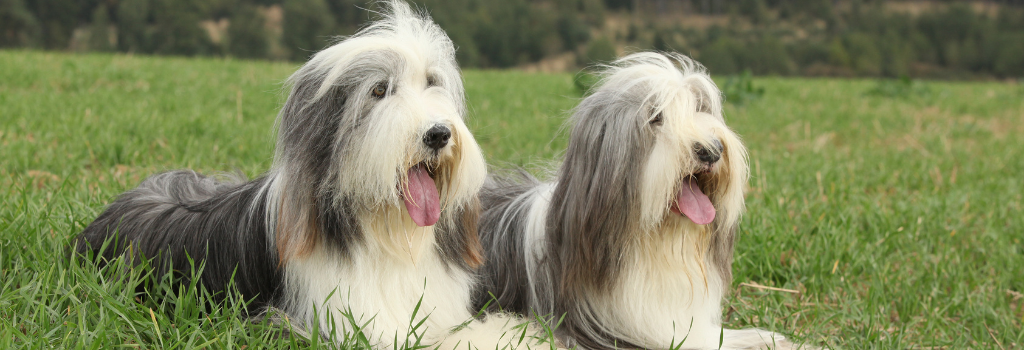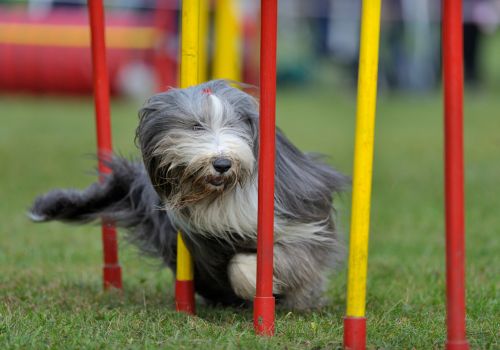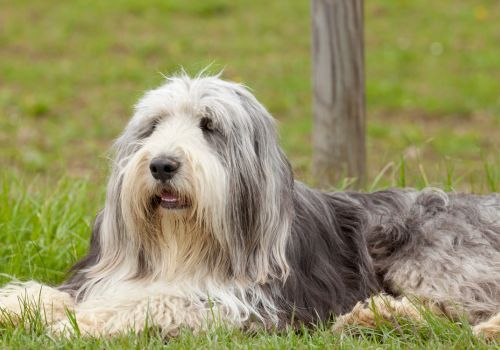Welcome to a breed that's as energetic and bouncy as a trampoline—the Bearded Collie, affectionately known as the Beardie. This Scottish native is sure to fill your life with vigor, affection, and a whole lot of fur!
The Wooftastic Traits: Why Beardies Make Pawsome Companions
- Einstein in Fur: These dogs are intelligent and quick learners—perfect for agility training or learning new tricks.
- Ever-Ready Energizer: With endless energy and a playful disposition, a Beardie is always ready for an adventure.
- Family First: They are excellent family dogs that are good with children and even other pups.
- Training Dream: Eager to please and responsive to positive training methods, you'll find them a joy to train.
Not So Pawfect: Challenges to Consider
- A Few Hairy Issues: You'll need to brush that beautiful coat regularly to keep it mat-free.
- Sound the Alarms: They love to bark, whether it's at doorbells, for joy, or just to keep you updated on their thoughts.
- A Medical Pal: Be prepared for a few visits to veterinary specialists, just to keep them in tip-top shape.
- The Art of Mischief: When bored or left alone, these clever dogs will find their way into trouble.
- No to Negativity: They don't respond well to harsh reprimands or negative-reinforcement training.

Total BFF Material: Why They're Worth It
Think of your Beardie as the peanut butter to your kids’ jelly—a perfect match! This dog isn't just a pet; she's a built-in nanny who’ll joyfully herd your little ones around the yard.
A Coat Worth Its Weight in Gold
That gorgeous, flowing coat isn't just for show—it demands regular grooming. A little effort from you daily, and a monthly touch-up from professionals, will keep her looking her glamorous best.
The Friendly Barker
While they might not make the best watchdogs, their vocalizations more than make up for it. From expressing happiness to signaling arrivals, a Beardie loves to communicate through barks.
Historical Pawspective
Hailing from the Scottish Highlands and bred for herding, Beardies have a natural inclination to keep your ‘flock’ in check. So if you’re ready for an energetic, family-friendly dog that will keep you on your toes and your heart full, the Bearded Collie is the breed for you! Just be prepared to invest time in grooming and offer plenty of companionship to keep her happy.

Genetic Predispositions for Bearded Collies
Hypoadrenocorticism (Addison's Disease)
Hold up, ever heard of Addison's Disease? It sounds serious—and it is. This tricky disorder sneaks in when the adrenal glands decide they're not in the mood for producing enough hormones. The catch? The symptoms can look like a lot of other illnesses. But fret not! Special blood tests can diagnose it accurately. Bearded Collies are known to be a bit more susceptible, so keep an eye out at vet visits for any red flags like irregular electrolyte levels.
Hip Dysplasia
Oh, the infamous hip dysplasia! It’s as common in Bearded Collies as chew toys in a pet store. This inherited condition messes with the formation of the hip joints, leading to arthritis. You might notice your Beardie limping or struggling to get up. The earlier we catch this, the better we can manage the pain. Just remember, carrying extra pounds can make it all worse, so keep an eye on that diet!
Knee Ligament Tear
Is your Beardie a little ball of energy? Watch out for knee ligament tears, a common casualty of an active lifestyle. Cruciate Tears often involve surgery and some rigorous physical therapy. But hey, no Frisbees are worth a lifetime of knee pain, right?
Autoimmune Skin Disease (Pemphigus Foliaceus)

Ever noticed crusty patches or hair loss on your Beardie's nose or ears? That could be Pemphigus Foliaceus, a skin condition that seems to have a liking for Bearded Collies. Though there's no permanent cure, treatments are available. Just avoid too much sunlight and maybe apply some sunscreen on those sensitive parts!
Digestive Sensitivity
Does your Beardie seem to have a sensitive stomach? You’re not alone—digestive issues are part of the breed's genetic makeup. To help keep that tail wagging, stick to the recommended prescription pet food and try to steer clear of high-fat, salty, or artificial treats.
Eye Concerns
When it comes to eye health, it's crucial to be proactive. Bearded Collies can inherit various eye issues, some leading to blindness if untreated. So, those peepers should be thoroughly checked during vet visits.
- Cataracts: Cloudy instead of clear eyes? That's usually a sign of cataracts. And yes, older Beardies are especially prone to this. While many dogs adapt to vision loss, surgery could also restore their eyesight!
- Persistent Pupillary Membrane: Some Beardies have strands of tissue in their eyes that should have disappeared after birth but didn’t. Generally harmless, but they can cause issues, so keep a lookout!
- Progressive Retinal Atrophy (PRA): This one is heart-wrenching, as PRA is an inherited condition that eventually leads to blindness. There's no cure, but early symptoms like night blindness are a call to action for managing the condition.
- Corneal Dystrophy: Little white crystal deposits on the cornea are usually slow-moving and painless but can obstruct vision. While surgery is an option in severe cases, the crystals often make an unwelcome return.
Thyroid Problems
Beardies can also develop hypothyroidism, leading to a range of symptoms like dry skin, weight gain, or behavioral changes. But the good news? A simple pill can keep the hormones in check!
Seasonal Hair Loss
Ever noticed your Beardie's coat looking a little patchy? It might be seasonal flank alopecia. It’s more like a cosmetic concern and sometimes resolves on its own, or with some dietary supplements.
Retained Testicle (Cryptorchidism)
For male Beardies, sometimes one or both testicles decide not to make their grand entrance into the scrotum. This can be a risky business, as it increases cancer risk later on. If your pup has this, removal of both testicles is usually advised.
Don't have a vet in your area yet? We can help you find a local veterinarian.
If you have more questions, the GeniusVets Telehealth platform will give you unlimited access to text and/or video calls with board-certified veterinarians! To learn more click here.


